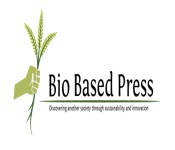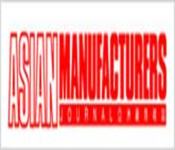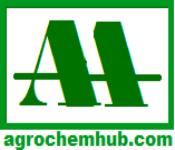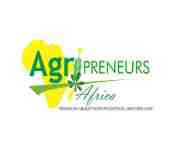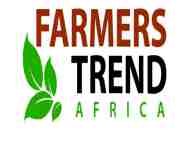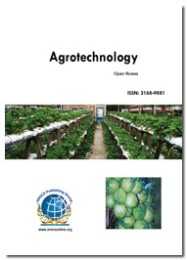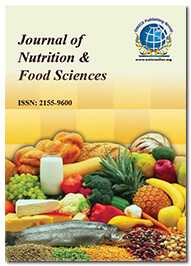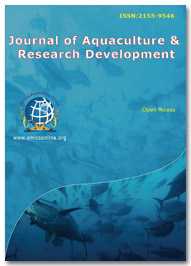Theme: Discovering Natural Resources through Agri Food Aqua 2018
Renowned Speakers
Agri-Food-Aqua 2018
- About Agri-Food-Aqua Conference 2018
- Tracks/Sessions of Agri-Food-Aqua Conference 2018
- Market Analysis for Agri-Food-Aqua 2018
- Past Conference Report
Agri-Food-Aqua Conference 2018
ME Conferences with great pleasure welcomes all the contributors in the food and health industry across the globe to the International Conference on Agriculture, Food and Aqua on November 22-23, 2018 in Cape Town, South Africa with a theme of “Discovering Natural Resources through Agriculture 2018”. The conference highlights keynote presentations, oral talks, poster presentations, and exhibitions. All the speakers, participants, students, and delegates from across the globe are cordially invited to the event. The international Agriculture 2018 Conference encourages the young student researchers through Poster Award Competition and Young Research Forum at the conference venue.
ME Conferences organizes 3000+ global events inclusive of 1000+ conferences, 600+ workshops and 400+ symposiums on various topics of science and technology across the globe with support from 1000 more scientific societies and publishes 700+ open access journals. The scientific events are specially designed cluster of a program that provides a common platform to exchange and share the experiences and research results on all aspects of agriculture, food, and aqua science.
Why attend?
The field of agriculture and food science is enormous with new discoveries and inventions coming up each day. It also facilitates the processing techniques with newly innovated equipment and to improve and establish the methods of testing. Agri-Food-Aqua 2018 provides a platform to reach the largest assemblage of participants from the agriculture, food and aquaculture stream through workshops, trade shows, exhibitions, oral and poster presentations.
Target audience
- Directors, Board Members, Presidents, Vice Presidents, Deans and Head of the Departments
- Food technologists
- Food laureates
- Food safety officers
- Food Industrialists
- Microbiologists
- Business Entrepreneurs
- Manufacturing Agricultural Devices Companies
- Agricultural Students, Scientists
- Food scientist and researchers
- Biochemist and Nutritionist
- Aqua-culturists
- Aquaculture Researchers
Track 1. Agricultural Biotechnology
Biotechnology is any technique that uses living organisms or substances to create or modify a product for a sensible purpose. In this line, farmers have modified plants to create the desired traits by the use of various scientific tools and techniques, the method to be known as, agricultural biotechnology. Agricultural biotechnology is being employed to handle issues altogether areas of agricultural production and process. This includes plant breeding to boost and stabilize yields, to boost resistance to pests, diseases and abiotic stresses like drought and cold, and to boost the nutritionary content of foods. It is being used to develop low-cost disease-free plants and also to increase the breeding capacity of plants. Agricultural biotechnology is criticised to create long-term adverse effects like developing new allergens, weeds that are resistant to herbicides, farmers may use additional chemicals to treat crops genetically built to resist poisons and biotechnology may also advance a decline in biodiversity but it should be thought of as a supplement to existing crop improvement programmes. It is not a cure; however, a technology that, once secured with different management methods, is capable of delivering results.
Track 2. Sustainable Agriculture
Sustainability is based on the principle that the needs of the present should be met without compromising them for future generations. The goal of sustainable agriculture is to fulfill society’s wants within the gift while not compromising it for the future generations to fulfill their own wants. This type of agriculture tries to seek out an honest balance between the necessity for food production and also the preservation of the ecological system. There are other goals related to sustainable agriculture, like conserving water, reducing the employment of fertilizers and pesticides, and promoting biodiversity in crops ecosystem. In agricultural production systems, it is necessary to acknowledge the characteristics of varied resources employed in production, the way they're managed or manipulated within the production method and also the technologies and practices which render the production system unsustainable. There is a need to ensure that the activities do not render the farming systems unsustainable. Agricultural ecology should be maintained as well as promoted.
Track 3. Food Biochemistry
Food biochemistry can be defined as the study of the breakdown of food within the cells to provide energy to the body. Understanding of food biochemistry followed by developments in food biotechnology have led to higher raw materials and products, improved human nutrition and food safety, and these developments are applied to the food industry. Food biochemistry details the structural and functional changes occurring in food components like carbohydrates, proteins, fats, pigments, and flavors during the various processing stages.
Carbohydrates serve as a primary energy source and its modification includes the formation of brown color, sweet aroma, and retrogradation. Proteins are complex molecules that are present in all living organisms and are directly involved in the chemical processes essential for life. A protein is composed of amino acids joined together to form long chains. Changes may occur due to moisture, heat or shear like Maillard reaction and structural denaturation. Fats are derivatives of fatty acids whose alteration comprise esterification, hydrogenation, rancidification and color fixation. Pigments are substances produced from selective color absorption comprising chlorophyll, carotenoids, flavonoids, etc. changes in pigments are either beneficial or reflect a degradation in quality. Food flavors have a major impact on taste and affect consumer acceptance.
Track 4. Novel Food Processing Technologies
These processing technologies are a consequence of customer demand for natural, high quality and healthy product that are safe. It aims at examining recent applications in the pulsed electric field, high-pressure technologies, food microbiology, and modern thermal and non-thermal operations to prevent the occurrence of food-borne pathogens, extend the shelf-life of foods, and improve the safety, quality, and nutritional value of varied food products. High-Pressure Processing (HPP) is a non-thermal pasteurization technique whereby products are held at high pressures for few minutes. The preference of this method over the standard thermal processing techniques involve less process time, less heat damage and retention of product flavor, texture, color, and nutrients of a number of liquid and semi-liquid foods. In the pulsed electric field (PEF) food is exposed to a pulsed high voltage which inactivates the bacteria. Hurdle technology involves combining more than one approach of preservation on food. All these approaches enhance food safety and quality without compromising the nutritional quality and safety.
Track 5. Food Microbiology
Food microbiology is the study of the microorganisms that contaminate food and also those used in the production of food. The micro-organisms either use the nutrients of food or synthesize new compounds that cause spoiling of food. Food safety is a major target of food microbiology. Various pathogens are transmitted through food like bacteria, virus and other toxins. Although various contaminants are removed during cooking still some of them may remain in the food. To ensure the safety of food products, they are tested through chemical and biological methods and measures are adopted to minimize them. The application of molecular analyses has allowed scientists to handle micro-organisms beyond merely determining whether particular pathogens are in a food. Apart from spoilage, some micro-organisms are used to prepare fermented food using plant and animal sources. Sometimes some live bacteria improve the health by promoting the body’s natural immunity and boosting the digestion system.
Track 6. Food Chemistry
Food chemistry studies the processes and interactions of all biological as well as non-biological components of foods. It inspects products like meat, poultry, beer, milk and also constituents such as water, vitamins, minerals, carbohydrates, enzymes and flavors Its basics are often drawn from rheology, transport phenomena, thermodynamics, chemical bonds and interaction forces, quantum mechanics, biopolymer science, colloidal interactions, and nucleation. Food chemistry plays a significant role in developing new food products and improving the quality of the already existing ones including altering the nutritional composition of food by fortification, enrichment, and supplementation. It ensures that food preparation, processing, and storage is done perfectly by ensuring good manufacturing practices. Another role played by food chemistry is the advancement of food standards promoting world trade and save the consumer from being deceived on the quality or the nutritive value of food.
Track 7. Designer Foods
Some foods are specially altered so that they can fulfill the special health needs of the consumer. These may be in terms of taste, health or preservation. A designer food is the same in a presentation to a conventional food which is consumed but is demonstrated to have physiological benefits and reduce the risk of chronic disease and also provides basic nutritional value. Most countries have proper regulations on the purchase and sale of such foods. In this line, genetically modified foods are those produced from organisms whose DNA is changed using the by genetic engineering. Therapeutic foods are designed normally for nutritional purposes to provide dietary supplements. The main example of therapeutic foods is those used for the emergency feeding of malnourished children or to complete the nutritional requirements in the diets of persons with special nutrition requirements. Functional foods can be defined as those whole, fortified, enriched and supplemented foods that provide health benefits apart from the essential nutrients, when they are consumed at effective levels as a part of the diet on a regular basis. Specialty foods are those that are commonly considered as unique and high-valued food items made in small quantities from high-quality ingredients. The main advantage of designer food is that it does not require any change in the dietary pattern of the people and can provide the suggested amount of nutrients regularly. It can be easily blended with the existing system of food production and distribution. In developed countries, these foods play a major role in improving the diet and eradicating nutritional deficiencies.
Track 8. Food Additives
Food additives are those that are added to the food to maintain as well as improve the taste, texture, shelf-life, safety, and freshness of the foods. Food additives can be either naturally derived from plants and animal sources or synthetic. It may include sequestering agents, acidity regulators, chelating agents, emulsifiers, stabilizers, sweeteners, colorants, and preservatives. Preservatives are used to prevent or delay bacterial and fungal growth in foods. These additives delay spoilage of food or extend the shelf life of the finished product. The amount of the additives to be used in food is regulated and specified by the government because the increased amount of some of the additives could be harmful to the body. E numbers are given to all the additives to administer them and to educate the customers. Government authorities monitor and ensure that food additives in food and drinks produced in their countries adhere to the permitted uses, conditions, and legislation.
Track 9. Technology of Animal Foods
Animal foods are a discipline that requires a complete understanding of the complexities of antemortem and post-mortem factors that impact the final product for the consumer. They are a source of high biological value protein, fat, vitamin A, vitamin B12, riboflavin, calcium, iron, and zinc. In addition, animal foods are in general more distinctive in flavor and texture and often more palatable than foods of vegetable origin. Animal source foods include many food items that come from an animal source such as meat, milk, eggs, cheese, and yogurt. The processing of animal foods requires proper slaughtering methods, hygiene maintenance, and appropriate processing techniques. Apart from the food products, many by-products are also made from animal sources like chitin, chitosan, lecithin, and products from animal wastes.
Track 10. Aquaculture science
Aquaculture is a commercial farming technique of breeding fish, algae, aquatic plants and other organisms in freshwater and saltwater systems under controlled conditions. Types of aquaculture include oyster farming, shrimp farming, fish farming, algaculture, mariculture, and also the cultivation of ornamental fish. The main aim of aquaculture is the production of protein-rich, palatable, nutritive and easily digestible human food at a reasonable cost, providing strengthening stocks and new species of existing fish in natural and man-made water-bodies through transplantation and artificial recruitment, support recreational fishing, recycling of organic waste of livestock and human origin and production of industrial fish. The strategy of aquaponics is applied in which aquatic animals are reared along with the plants in water. In this system, bio-filters are used which convert ammonia to nitrates useful for the plants.
Track 11. Fisheries Science
Fishes being an important source of nutrients are captured and consumed. They could be captured from natural sources or artificially bred, hatched and reared in the early stages. Fisheries science is the art of managing and understanding fishes. It includes freshwater biology, limnology, marine biology, conservation, ecology, oceanography, economics, and management. Growth and health of fish and other aquatic animals is dependent upon an adequate supply of nutrients, and fisheries science focuses on it. Fish diseases may be specific like a response to an individual pathogen or non-specialized like diseases on the skin and scales. Fisheries science helps to formulate and maintain the quality of fish and fishery products. Fisheries law is the specialized area of law including the study and analysis of different fisheries management approaches like seafood safety and aquaculture regulations.
Track 12. Aquatic Ecosystems
An aquatic ecosystem is an ecosystem present in a water body. Organisms that are dependent on each other and on their environment sustain in this. The main types of aquatic ecosystems are marine ecosystems and freshwater ecosystem. Organisms found in marine ecosystems include brown algae, corals, echinoderms, and sharks. Fishes caught in these ecosystems are the main source of commercial foods. The freshwater ecosystem includes ponds, lakes, rivers, and wetlands. They attenuate floods, recycle nutrients, provide habitats for wildlife, purify water, and recharge groundwater. Aquatic ecosystems are also used for human recreation, especially in coastal regions. The well-being of aquatic ecosystems is essential to the well-being of the planet. Recognizing the main components of aquatic ecosystems and the interaction among living organisms and their environment can give a better understanding of the system. Implementing policies that comply with existing federal laws and regulations are a very essential step in the field of aquaculture. Such policies ensure environmental protection, water quality, increase efficiency and protection of aquatic as well as public health.
Track 13. Waste Management
Waste management includes the activities required to manage waste from its initiation to its final disposal. This comprises of a collection, transport, treatment, and disposal of waste. The wastes can be treated either by physical, chemical or biological methods. Agricultural waste is produced from various agricultural operations. It includes wastes from farms, poultry houses; harvest waste and pesticides that enter into water, air or soils. Using it as manure prepared from livestock and poultry excreta and food-processing waste can improve crop production by increasing the supply of nutrients in the soils. Aquaculture waste is mainly in the form of waste-water containing compounds such as suspended solids, nitrogen, and phosphorus which can be treated by waste-water treatment techniques or by using aquatic plants and animals.
Track 14. Altered diet and responses on human health
Dietary transitions in human records were suggested to play essential roles within the evolution of human race. The main purpose of public health intervention is to boost health and prevent diseases but the problems of changing food habits result in both positive and negative impacts on human health. The diet of an individual is determined by the process, the supply, and taste property of foods. A healthy diet includes storage ways and preparation of food that may preserve nutrients from oxidation, heat or natural process. Research in nutrition terms may make it easier for us to make better food choices and keeps us healthy. Contemporary dietary patterns have led to acceptable results like increased nutritional efficiency, decreased the risk of allergies and also diseases like prevention of hypertension, cardiovascular diseases, and chronic diseases. It may give negative results such as causing skin irritation, difficulty in breathing, headaches, cancer due to pesticides; obesity, food poisoning, diabetes, dental problems, high blood pressure and depression due to processed foods; and arthritis, meningitis, inflammation of joints and ciguatera from fisheries.
Track 15. Food Analysis, Safety, and Health
Food analysis is that discipline which addresses the application and study of analytical procedures for characterizing the properties of foods and their constituents. These analytical procedures give information about the composition, structure, chemistry, properties and sensory attributes of foods. This data is important to our rational understanding of the factors that verify the properties of foods, and also our ability to economically make foods that are systematically safe, nutritional and fascinating and for customers to buy products as per their diet. One of the foremost necessary reasons for analyzing foods from each of the shoppers and also the manufacturers’ position is to confirm that they're safe. It would be economically fateful, furthermore unpleasant to shoppers if a manufacturer sold-out a product that was harmful or poisonous. A food is also thought to be unsafe because it contains harmful microorganisms, poisonous chemicals or extraneous matter. It is thus necessary that food makers do everything they can to confirm that these harmful substances are absent, or that they're effectively eliminated before the food is consumed. Food safety can be confirmed by the proper quality control in terms of appearance, texture, flavor and shelf life. The importance of distinct food ingredients and operations which determine the ultimate properties of foods should be realized so that the production method could be managed to provide the final product with consistent properties.
Track 16. Agriculture Economics
Agriculture plays a crucial role in the economy of a country and agricultural economics is concerned with the application of economic theory in optimizing the production, allocation, and distribution of food. It is also sometimes referred to as agronomics. It includes both microeconomics as well as macroeconomics. Agriculture may become a source of the capital needed for industrial development. It aids in the process of rural development by improving the quality of life and economic well-being of people living in relatively isolated and sparsely populated areas. Thus, a country aiming to develop its economy is said to give importance to agriculture. Agricultural economist should allocate the resources in the agricultural industry with the substitute in production; marketing or public policy Agriculture may be created rather more productive with the right investment in irrigation systems, research, fertilizers, pesticides, and herbicides. Agriculture economics benefit the economy by the development of the rural area, increase food production, improvement in the balance of trade but it also continues to face inefficiencies arising from structural defects like land fragmentation, labor shortage and increasing price of inputs.
Introduction
Agriculture can facilitate economic conditions, hike earnings and improve food security for 80% of the world's poor, who work mainly in farming. With modern agricultural techniques, the market is increasing using improved seeds, chemicals, and fertilizers. Also, the employment of sensors and increasing adoption of livestock face recognition is facilitating the market growth. Increasing support from the government for the development of new farming techniques and global awareness regarding the benefits of agriculture over the years are expected to boost the growth of the agriculture market during the future period.
The modern world has substituted home-cooked food with processed food, resulting in the growth of the processed food industry. The global food processing equipment market is driven by the increasing consumer demand for processed food, focus on food safety and safety of workers, growing need to increase productivity, increasing the focus of food manufacturers to cut down manufacturing cost, and government support to push food processing sector.
Aquaculture is also becoming the rapid food-producing sector in the world. With the increase in population, the demand for aquatic food products is also increasing. Production from capture fisheries has increased and most of the main fishing areas have reached their maximum potential. Sustaining fish supplies from capturing fisheries will not be able to meet the growing global demand for aquatic food.
Scope and Importance
Agriculture, food, and aquaculture is a significant source of national income for the developing countries. The global food technology market expands drastically by 2022 the expected growth of food technology market is over $250.43 billion. The global market for probiotic ingredients and supplements has reached $23.1 billion in 2012, $27.1 billion in 2013 and it may reach $36.7 billion in 2018. The processed food industries are also valued at over $2 trillion dollars globally and consist of over 400,000 businesses. Aquaculture market was valued at USD 156.27 billion in 2015 and is anticipated to achieve USD 209.42 billion in 2021. This growth is attributed to a number of factors such as suitable weather conditions, availability of natural resources and labor at a cheap salary. Furthermore, North America and Europe are expected to have significant growth in the near future owing to advancing trends in aquaculture.
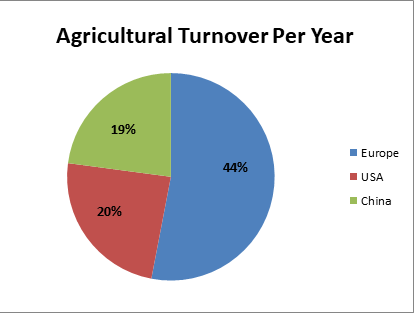
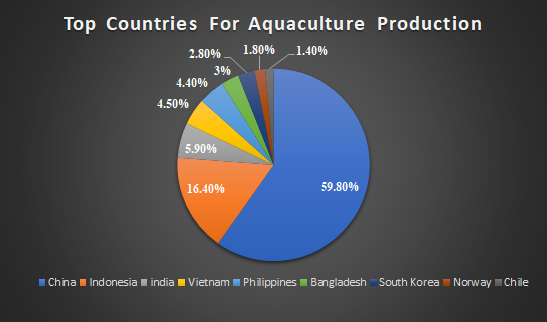
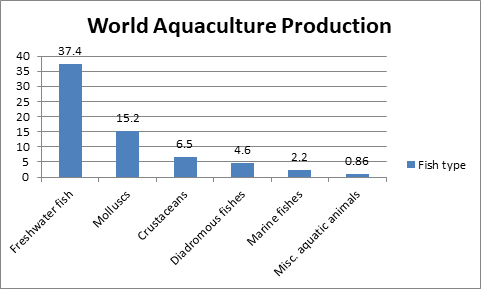
Why Cape Town, South Africa??
Cape Town is a coastal city in South Africa and also the capital of South Africa. The Cape Town region is characterized by an extensive coastline, rugged mountain ranges, coastal plains, inland valleys and semi-desert fringes. South Africa is a multi-ethnic culture enveloping a wide assortment of societies, dialects, and religions. Its pluralistic cosmetics are reflected in the constitution's acknowledgment of 11 official dialects, which is among the most noteworthy number of any nation on the planet. This is because of the mild climate, natural setting, and well-developed infrastructure. The city has several well-known natural features that attract tourists, most notably Table Mountain. Cape Town isn't just a prominent global traveler goal in South Africa, yet Africa all in all. Cape Point is perceived as the sensational headland toward the finish of the Cape Peninsula. Various voyagers love to drive along Chapman's Peak Drive, a constrained territory that connects Noordhoek with Hout Bay.
Export Scenario of Agricultural Products in South Africa
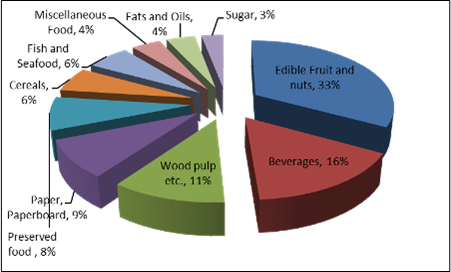
Major Agricultural, Food and Fisheries Associations in South Africa
- The Southern African Confederation of Agricultural Unions (SACAU)
- International Food and Agribusiness Management Association (IFAMA)
- Agricultural Economics Association of South Africa (AEASA)
- Department of Agriculture, Forestry, and Fisheries (DAFF)
- South African Association for Food Science and Technology (SAAFoST)
- The Pet Food Industry Association of Southern Africa (PFI)
- The Beverage Association of South Africa
- Good Food Fundraiser
- Aquaculture Association of South Africa. Pretoria, South Africa. ...
- Tilapia Association of South Africa (TILASA) ...
- Marine Finfish Association.
Major Agricultural, Food and Fisheries Universities in South Africa
- Grootfontein Agricultural Development Institute
- The University of Stellenbosch, Faculty of Agriculture and Food Sciences
- Fort Cox College of Agriculture and Forestry
- Cedara Agricultural College
- College of Agriculture and Environmental Sciences, University of South Africa
- Tsolo College of Agriculture
- The University of Pretoria, Department of Food Science
- Department of Ichthyology and Fisheries Science, Rhodes University
Related Societies
Europe:
The European Society of Agricultural Engineers (EurAgEng), The European Association of Agricultural Economists (EAAE),European Society for Agricultural and Food Ethics (EurSafe), European Association for Agroecology, The European Federation of Food Science and Technology (EFFoST), European Food Safety Authority (EFSA), The Federation of European Nutrition Societies (FENS), The International Wine and Food Society (IW&FS), European Aquaculture Society, Local Authority Caterers Association, Australian Institute of Food Science and Technology, International Association of Food Industry Suppliers, USA, International Bottled Water Association, USA.
USA:
National FFA Organization, American Farm Bureau Federation, Food USA, San Francisco Professional Food Society (SFPFS),The Confrérie de la Chaîne des Rôtisseurs: Food and Wine Society, World Apple and Pear Association, The United States Aquaculture Society (USAS), National Aquaculture Association, Colorado Aquaculture Association, American Society for Parenteral and Enteral Nutrition, USA, German Federation of Food Science and Technology, Germany, Warwick Good Food Society
Asia-Pacific:
East Asia Plant Variety Protection forum, Asia and Pacific Commission on Agricultural Statistics (APCAS), Asia Pacific Association of Agricultural Research and Innovations, Australian Institute of Food Science and Technology, Japan society for food engineering, China Society of Fisheries, Aquaculture Association of South Africa, Japan Society of Nutrition and Food Science, Asian Food Safety and Security Association, Japan, Food Industry Students European Council, Netherland, European Food Information Resource, Belgium, Asian Fisheries Society
Middle East:
Middle-Eastern agricultural civilization, Malaysian Society of Soil Science, Middle Eastern Food and Culture Society, The Middle East Aquaculture Forum, All India Bread Manufacturer’s Association (AIBMA), National Agricultural Cooperative Marketing Federation of India Limited (NAFED), Middle East Aquaculture Association, Fishing Technology Association, Society of Fisheries Technologists, Aquaculture Fish Farming Associations, National Turkey Federation
Related Conferences
-
20th International Conference on Nutrition, Food Science and Technology, April 16-17, 2018 in Dubai, UAE
-
International Conference on Food Safety and Health, August 30-31, 2018 in Dubai, UAE
-
11th World Congress on Food Chemistry & Food Microbiology, September 03-04, 2018 in Dubai, UAE
- 20th World Congress on Nutrition & Food Science, May 14-16, 2018 in TOKYO, JAPAN
-
11th Global Summit on Aquaculture & Fisheries, May 24-25, 2018 in Osaka, JAPAN
-
12th International Conference on Agriculture and Horticulture, July 09-10, 2018 in SYDNEY, AUSTRALIA
-
12th World Congress on Aquaculture & Fisheries, September 19-20, 2018 in HONG KONG
-
Global Summit on Agriculture, Food Science, and Technology, October 26-27, 2018 in BOSTON, Massachusetts, USA
-
21st International Conference on Food Technology & Processing, October 02-04, 2018 in London, UK
-
International Conference on Food Production and Preservation, Oct 17-18, 2018 in OTTAWA, ONTARIO, CANADA
-
European Aqua Congress, October 18-19, 2018 in PARIS, FRANCE
-
13th International Conference on Agriculture & Horticulture, September 10-12, 2018 in Zurich, SWITZERLAND
-
19th Global Summit on Food Technology, Nutrition & Health, September 26-27, 2018 in SAN ANTONIO, TEXAS, USA
-
378th International Conference on Food and Agricultural Engineering (ICFAE), May 4- in Frankfurt am Main, Germany
-
2nd International Conference on Food and Agricultural Economics (ICFAEC) 2018, Apr 27-28 in Alanya, Turkey
-
Euro-Global Conference on Food Science, Agronomy and Technology, Jun 7-9 Jun in Italy
-
6th International Conference on Agriculture & Food, 20-24 June 2018 in Elenite Holiday Village, Bulgaria
-
International Conference on Aquaculture, 04-06 June 2018 in Copenhagen, Denmark
-
5th International Conference on Fisheries and Aquaculture, Aug 23-24 2018 in Negombo, Sri Lanka
-
International Conference on Aquaculture & Marine Biology, June 25-27, 2018 in Rome, Italy
Agri 2017
ME Conferences hosted 10th International Conference on Agriculture & Horticulture was held on October 02-04, 2017 in London, the UK based on the theme “Agriculture for the Future”.
Active participation and generous response were received from the Organizing Committee Members, scientists, researchers, as well as experts from Non-government organizations, and students from diverse groups who made this conference as one of the most successful and productive events in 2017.
The conference was marked with several workshops, multiple sessions, Keynote presentations, panel discussions and Poster sessions. We received active participation from scientists, young and brilliant researchers, business delegates and talented student communities. The scientific program paves a way to gather visionaries through the research talks and presentations and put forward many thought provoking strategies. The proceedings of the conference were embarked with an Opening Ceremony followed by Special Sessions and a series of Lectures delivered by both Honourable Guests and members of the Keynote forum. The following topics were highlighted in the conference:
- Smart irrigation: Agricultural water savings with improved irrigation
Kelly T Morgan, University of Florida, USA
- The Future of organic farming in the light of the development of new biological fertilizers
Peter J Leggo, University of Cambridge, UK
- Epigenetic control of leafy heads in Brassica crops
Yuke He, Shanghai Institutes for Biological Sciences, China
- The potential impact of the microbiome on future agriculture
Rainer Roehe, Scotland’s Rural College, United Kingdom
We heartily congratulate the winners of the Poster Competition and Young Research Forum Competition and appreciate all the participants who put their efforts in poster presentations and Young Researchers and sincerely wish them success in future endeavors. We extend our heartiest thanks to all the Organizing Committee Members for their kind support rendered towards the success of Agri 2017.
ME Conferences, therefore, is glad to announce its “International Conference on Agriculture, Food and Aqua”, which will be held during November 22-23, 2018 in Cape Town, South Africa. We cordially welcome all the eminent researchers, students, and delegates to take part in this upcoming conference to witness invaluable scientific discussions and contribute to the future innovations in the field Agriculture, Food, and Aquaculture.
For further information please contact: https://agriculture.foodtechconferences.com/
Conference Highlights
- Agricultural Biotechnology
- Sustainable Agriculture
- Food Biochemistry
- Novel Food Processing Technologies
- Food Microbiology
- Food Chemistry
- Designer Foods
- Food Additives
- Aquaculture science
- Fisheries Science
- Aquatic Ecosystems
- Waste Management
- Food Analysis, Safety and Health
- Agriculture Economics
- Altered diet and responses on human health
- Technology of Animal Foods
To share your views and research, please click here to register for the Conference.
To Collaborate Scientific Professionals around the World
| Conference Date | November 22-23, 2018 | ||
| Sponsors & Exhibitors |
|
||
| Speaker Opportunity Closed | Day 1 | Day 2 | |
| Poster Opportunity Closed | Click Here to View | ||
Useful Links
Special Issues
All accepted abstracts will be published in respective Our International Journals.
- Journal of Agricultural Science and Food Research
- Journal of Food Processing & Technology
- Fisheries and Aquaculture Journal
Abstracts will be provided with Digital Object Identifier by














